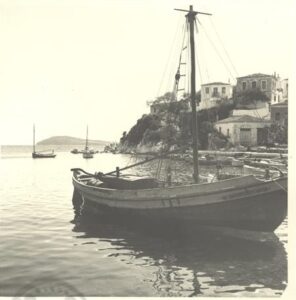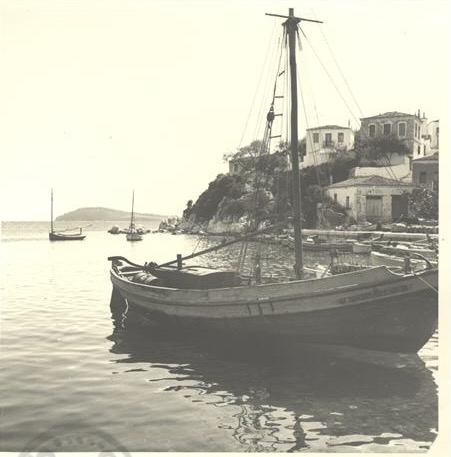New Paper – Maritime Archaeological Research, Sustainability, and Climate Resilience

We are pleased to announce that our IHOPE affiliate, postdoctoral researcher at the University of Helsinki, Dr. Katerina Velentza, published a new paper in the European Journal of Archaeology. Dr. Velentza has been working on the IHOPE affiliated project Re-imagining the use of traditional watercraft in the Aegean Sea for a sustainable environment and economy. The maritime archaeology project’s focus includes an interesting component assessing future possibilities for re-adoption of traditional watercraft rather than fuel-based watercraft, in addition to human-environment maritime interactions.
The newly published paper, Maritime Archaeological Research, Sustainability, and Climate Resilience, is of interest to many researchers in our network, particularly those related to maritime archaeology or looking into adaptable responses to sustainability challenges and climate change. Dr. Velentza lays out linkages between the UN Sustainable Development Goals targets, current projects in maritime archaeology, and their ability to contribute towards climate resilience. The paper is a very interesting read for considering maritime archaeology’s role in a more sustainable future.
Read the article here: https://doi.org/10.1017/eaa.2022.48
Abstract for Maritime Archaeological Research, Sustainability, and Climate Resilience:
“Maritime archaeology has been identified as a significant field among the humanities that could contribute to the global sustainable development agenda. This article explores the relevance of maritime archaeological studies to initiatives of climate action. Βy reviewing the contributions of various state-of-the-art projects and by linking their aims and outcomes to specific targets of the UN Sustainable Development Goals, the author highlights the benefits of involving maritime archaeological research in the pursuit of sustainability and climate resilience. This involvement could play a key role in reinforcing human-centred and culturally aware solutions to the current climate change effects that threaten human populations, especially in maritime regions. It is hoped that this discussion will inspire researchers in the humanities, archaeology, and maritime archaeology in particular, to use their expertise within the framework provided by the sustainable development agenda to help build a better future.“
